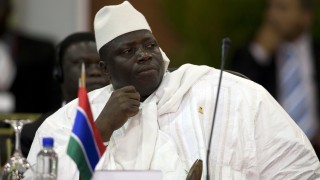The fate of Yahya Jammeh’s presidency was sealed the day The Gambia’s electoral body declared Adama Barrow, his opponent in the country’s December Presidential polls, winner. At first, the country’s leader of 22 years seemed to realise this, conceding defeat shortly after the results were declared. Soon after, perhaps remembering that he once promised to rule The Gambia for a billion years, Jammeh changed his mind. Since then, he has rebuffed the pressure from the International Community to peaceful exit the presidency, and in doing so, drastically raised the stakes in a political game that he is almost certain to lose.
It could be that Jammeh looks to Burundi’s sit-tight leader, Pierre Nkurunziza, as an inspiration for holding onto power in the face of local and international pressures. If he does, then he is misreading their similarities. The circumstances under which Nkurunziza successfully (and many would argue illegally) retained power in Burundi is significantly different from Jammeh’s situation in The Gambia. First, Nkurunziza did win his election, regardless of how shambolic it was, and he also did get the country’s constitutional court to validate his candidacy, even if it was apparent that the court would never rule against his wish. Nkurunziza also had a fiercely loyal, America-equipped, army (which successfully repelled a coup d’état), as well as a fractured and politically weak East African regional bloc.
Jammeh has none of the factors mentioned above in his favour. First, he lost his election and even initially conceded defeat. Secondly, the Supreme Court, to which he has appealed to declare the election results void, cannot sit, thanks to his firing of its judges several months ago, and the Gambian Bar Association has released a statement that his term (which ends on January 19) could not legally be extended except through a referendum altering the constitution. Also, Jammeh has few allies within the civil society as well as abroad, and although The Gambian Military still backs him, it cannot stand the military force of the much more politically and militarily strong ECOWAS should the regional body makes good of its threat to remove him by force if he refuses to vacate office. This makes Jammeh’s predicament a lot more like that of Laurent Gbagbo, the forcibly ousted former President of Côte d’Ivoire.
After delaying elections for five years Gbagbo lost his re-election bid to now President Alassane Ouattara in 2010. Instead of accepting the results and relinquishing power, the former President condemned the results as fraudulent, got the constitutional to agree with him and exclude a large chunk of Ouattara’s vote after which it proceeded to declare Gbagbo the winner. Rather than bulge to the growing pressure from the international community to transfer power to the rightful winner, Gbagbo closed the borders, banned foreign news organizations and began attacking suspected Ouattara supporters using the army. None of these moves prevented the eventual outcome, Gbagbo’s removal from office, instead, it compounded his problems—he is now standing trial at the International Criminal Court on charges of crimes against humanity for acts allegedly committed when he tried to keep himself in power. If Jammeh continues down his recalcitrant path, the same fate most likely awaits him.
In further evidence that the die is cast against Jammeh, the African Union Peace and Security Council said Friday, that it will stop recognising him as The Gambia’s legitimate president from January 19, when he is constitutionally mandated to hand over to Adama Barrow. The council warned of “serious consequences in the event that his action causes any crisis that could lead to political disorder, humanitarian and human rights disaster, including loss of innocent lives and destruction of properties,” a similar warning that was given to Laurent Gbagbo. ECOWAS, which has made several entreaties to Jammeh over the past few weeks, all of which have been to no avail, is also preparing for a showdown with the sit-tight ruler after departing The Gambia’s Capital, Banjul on Saturday, with the country’s President-elect Adama Barrow for the Africa-France Summit in Bamako, Mali. If Jammeh continues to refuse to cede power, and the ECOWAS asks for UN Security Council approval to deploy troops to The Gambia as Mohamed Ibn Chambas, head of the UN Office for West Africa and the Sahel, said on Friday, then the next time that Jammeh meets a contingent from the regional body it may be for transportation to the ICC, Gbagbo style. His best option, now before it’s too late, is to step down and step back into private life, or take the asylum offer to Nigeria.








